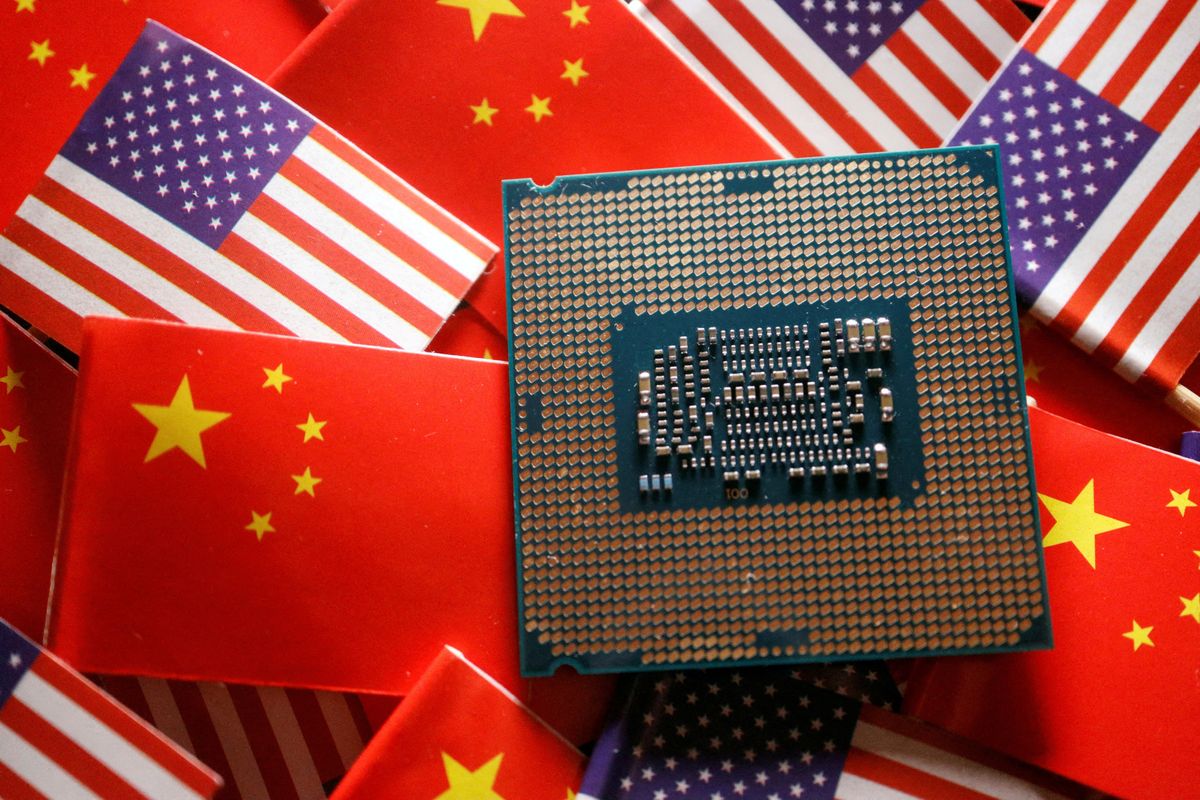The US-China chip war – what’s going on?
China has said it wants to be a world leader in AI by 2030, and it’s leaning toward boosting its own domestic chip industry.

A few minutes every morning is all you need.
Stay up to date on the world's Headlines and Human Stories. It's fun, it's factual, it's fluff-free.
Last year, the US made waves when it tightened controls on exports of semiconductors and advanced chip technology to Chinese companies. The country also enacted a rule that companies in other countries using American tools to build technology like this needed special licenses to export that tech. On top of that, US citizens and green card holders couldn’t work for certain Chinese chip companies. It also encouraged other countries to follow suit, with governments in places like the Netherlands and Japan eventually putting into place similar restrictions.
Chinese companies began trying to navigate these new rules, changing spending targets and working on finding new tech manufacturers. These measures were met with a lot of pushback from China and even some American companies and organizations. China has called the curbs "technology terrorism."
Last September, US national security advisor Jake Sullivan explained these new controls as a matter of protecting national security, saying, “Our strategic competitors should not be able to exploit American and allied technologies to undermine American and allied security.” A lot of it has to do with concerns about China’s advancement in the artificial intelligence (AI) sector and how it might use this technology for military applications and global influence. The curbs were also seen as a commercial move, with the US wanting to pull ahead of China in the tech race overall.
Now, on top of all that, starting from August 1, China will be restricting the exports of two metals widely used in semiconductors and EVs – gallium and germanium. China is the largest producer of these metals. These restrictions will probably target companies in the semiconductor and defense industry, which could give China a step up and bring it some bargaining power with the US in the tech race between the two nations.
"It's clearly timed to send a not-so-subtle message to the Biden administration that China holds significant cards when it comes to inputs to the semiconductor, aerospace, and automobile industries, and can and will increasingly be willing to inflict pain on U.S. companies," said Paul Triolo, the senior vice president for China at strategy firm Albright Stonebridge.
But now, the US is pivoting again, considering limiting China’s access to certain US-based cloud computing services. These new restrictions would affect how Chinese AI developers access cloud tech through providers like Amazon Web Services and Microsoft.
China has said it wants to be a world leader in AI by 2030, and it’s leaning toward boosting its own domestic chip industry in response to all these bans. Meanwhile, the US is ramping up domestic chip production to stay ahead of the race and reduce reliance on China, while Europe is also prioritizing “de-risking” from China by diversifying its tech supply and production chains.




Comments ()